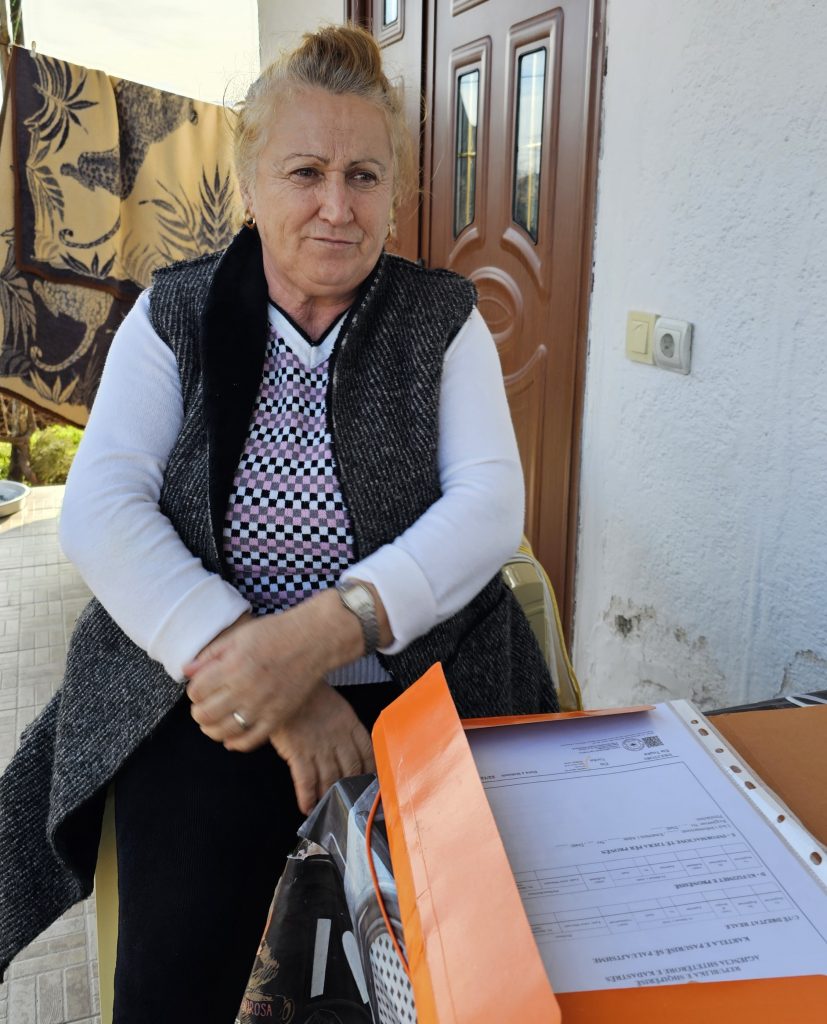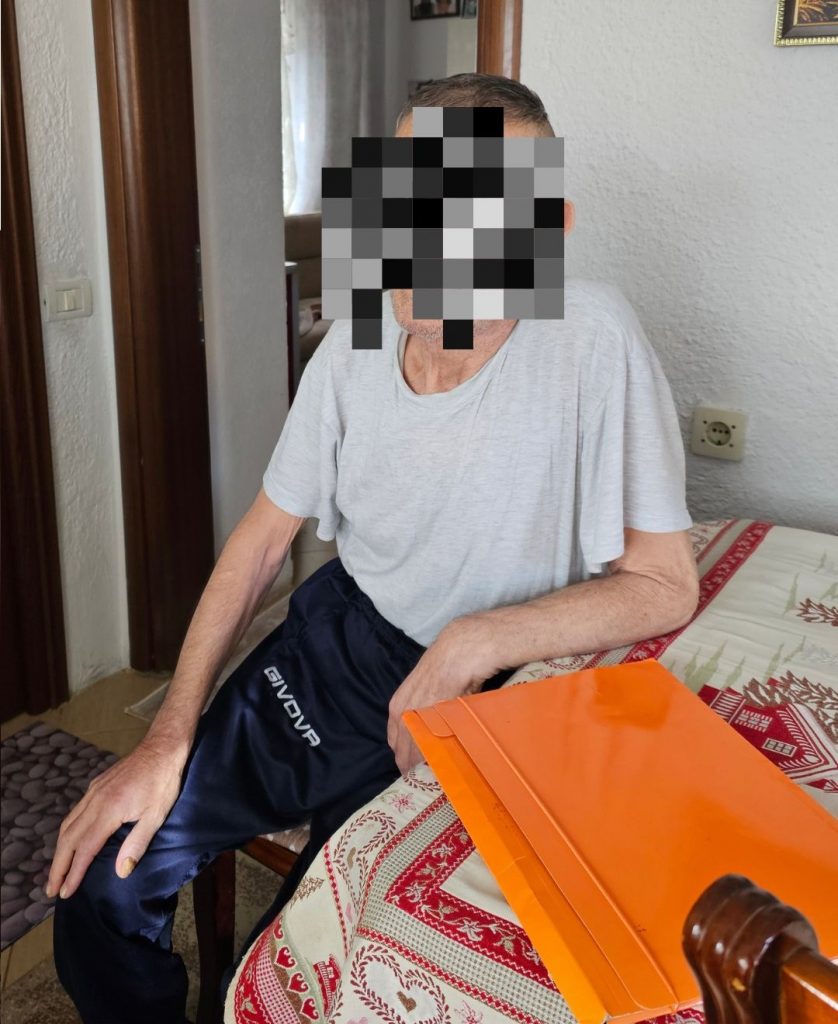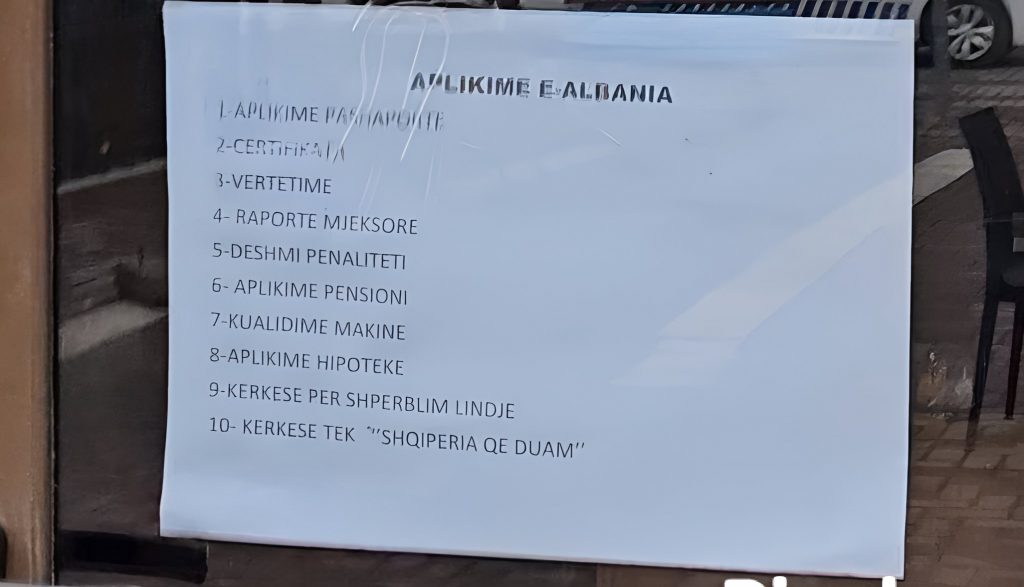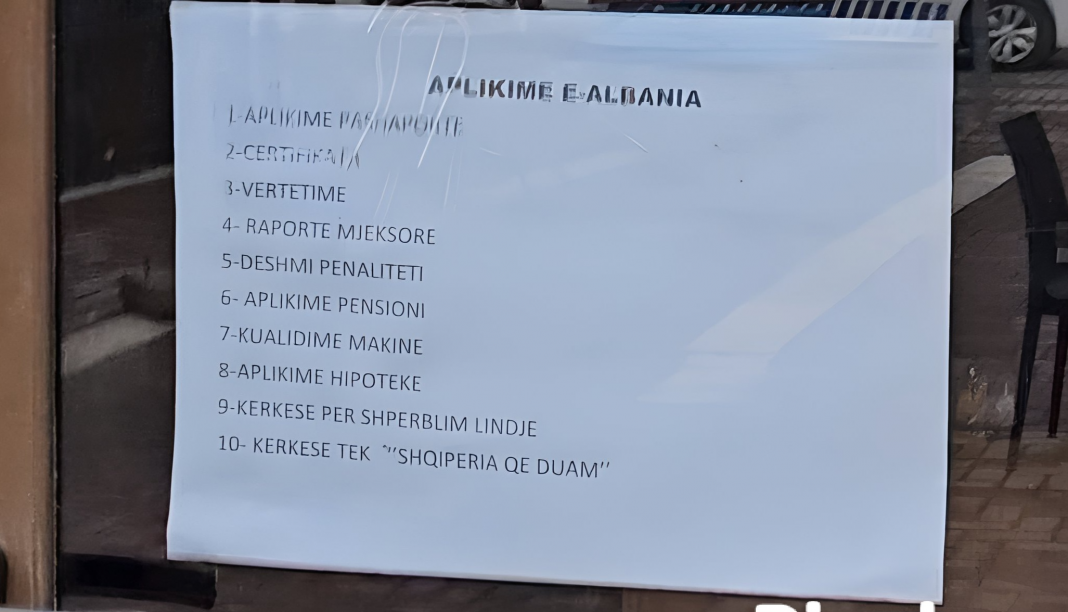The Prime Minister’s 2023 initiative to digitize cadastral offices resulted in counterproductivity for a wide community. The verification in Pogradec revealed that hundreds of individuals, mostly elderly but also young ones, are unable to navigate or utilize online applications. This situation has become a lucrative business for chancelleries and notarial offices, particularly targeting the elderly who wish to apply on e-Albania. The Ombudsman is concerned that human rights are being violated, while AKSHI acknowledges that there have been insufficient campaigns to inform vulnerable groups about the use and access of services through e-Albania.
Artin Halili
At the end of June 2023, Prime Minister Edi Rama promised that by July 3, 2023, every service provided by the Cadaster would be digitized, with 71 services accessible online through the e-Albania platform.
‘As of Monday, July 3, the Cadaster is a digital machinery. No one will be able to find out how property is handled except through the Cadaster’s machinery. Citizens should no longer go to the Cadaster because nobody awaits them, just like at the Bank of Albania. Every action will be done through e-Albania’ Rama said during the presentation of the Cadaster reform‘. The Prime Minister’s commitment was expected to bring an end to the struggles of thousands of citizens who have been knocking on property Agencies doors for years to acquire their properties.
What happened after July 3rd
As of July 3rd, 2023, no one can get a response at counters or physical documents anymore; only through E-Albania. Pensioners, residents of rural areas, and individuals with disabilities appear to be the communities most affected by the lack of knowledge on how to access services on e-Albania, and consequently, they are left without accessing these services.
The pensioner couple in Pogradec: Properties, we don’t even know when we’ll get them
The pensioner couple Pasko and Pavlina Bicja, residing in Lin near Pogradec, have been attempting without success since 2019 to acquire property certificates granted under Law 7501. Following the digitization of the cadaster, it appears to be an even more impossible mission, particularly considering that health and strength are also failing.
‘When we applied, we were told to hire a topographer to conduct the measurements. We obtained the topographer and paid around 17,600 new ALL for this process at the bank. We submitted the documents and waited, but we didn’t receive the certificates. Later, we were told that we needed to hire land surveyors and appear before the notary for the boundary division, which I didn’t understand because we had already obtained the topographer for this job. I had to make notary statements which cost us a lot of money, and we didn’t proceed with the process,’ – says Pavlina, who serves her husband with a tumor 24/7.


Pavlina and Pasko Bicja, pensioners in Pogradec Pavlina and Pasko Bicja, pensioners in Pogradec
During the pandemic, institutions were isolated, and it was only after the lifting of restrictions that the couple was able to meet with the head of the Pogradec Cadaster, who assured them that they would receive their property certificates within a month.
‘Actually, it’s been almost a year, and we still haven’t received the certificates. Now I can’t track them anymore! The daughter I have abroad has written to the Prime Minister, but we are still waiting, we have no answer.’ – explains the elderly woman who is now troubled about who will assist her in applying on e-Albania.
‘I don’t know how to use E-Albania, I don’t know how to make requests, I don’t even know where to go to do them. As of today, I’ve lost hope that something will be resolved; my husband has cancer, and neither he nor I can manage the properties. Children are abroad, they work there because there’s no opportunity for them to work here.
The notary ‘resolves the issue’ but needs payment
E-Albania now provides 95% of the services that citizens used to obtain physically and pay fees for until yesterday. Until recently, a personal or family certificate was obtained at the civil registry offices. Today, it is provided online free of charge, but many middle-aged or elderly individuals lack knowledge about the application, don’t have smart phones or computers to make the application, or printers in case the document needs to be printed.
Bari Isallari, a pensioner, should obtain the house certificate following his wife’s death. For this, he first needs to obtain his wife’s death certificate to proceed with further procedures. However, he doesn’t have a smart phone and doesn’t know how to log in to e-Albania. To solve the issue, he went to one of the city chancelleries where a notice is posted offering assistance for e-Albania services, albeit for a fee. But it doesn’t end here. With the certificate in hand, he went to the notary to proceed with opening of the property process, yet again he has to pay for the generation of additional documents to complete the process. The entire process, previously assisted by a cadaster employee, now takes place at the notary’s office or through chancelleries, often with predetermined fees.

Assistance is offered for passport applications, certificates, medical reports, criminal record certificates, pension applications, vehicle registrations, mortgage applications, birth reward requests etc.
The prices for each service range from 500 to 3000 new ALL, depending on the type of document and application. According to information from several chancelleries in Pogradec, it is estimated that each of them assists around 20 to 30 citizens per day with online services, for a fee. Reportedly, citizens who used this service are of the middle-age and pension age groups, but young people as well.
This is a costly challenge for many individuals in Pogradec, which has a population of around 82 thousand residents, including 12 thousand pensioners.
Endri Çela, a lawyer in Pogradec, is skeptical about the digitization of services. Despite making services easier for many, it has also created difficulties for the elderly community and beyond.

Endri Çela, Lawyer
‘It’s quite challenging, especially for applications to the State Cadaster Agency. It was more effective and easier when Adisa’s offices were open because all the people who couldn’t apply could receive this service there.’ says Çela, adding that interactive communication is necessary to obtain information. According to him, the wait for information from e-Albania is sometimes prolonged and ineffective, as not all details or questions can be addressed through this method.
Even the Ombudsman confirms the problematic situation for accessing online services by a considerable part of the community in Pogradec.
‘Complaints have been primarily about applications in the cadaster and social insurance, which are the most common. Our office helps citizens with this service, free of charge. Not because it’s an obligation of the institution, but to assist citizens and avoid the high fees that the private sector charges for providing these services‘ says Burbuqe Ngracanji, Representative of the Ombudsman’s Office, confirming the receipt of at least 80 complaints regarding obstacles encountered in accessing online services. The digitization, as a step forward, is positive for achieving faster services, but solutions are needed for citizens facing difficulties in its usage, such as the poor, the elderly, and even the youth, emphasizes Ngracanji adding:
‘The Ombudsman is working on preparing a study focusing on ‘Protecting Human Rights in the Digitization of Public Services in Albania’. Upon completion of the research, a comprehensive report will be compiled, outlining the issues and providing relevant recommendations. This report will be submitted to the competent state authorities with the aim of ensuring that the digitization process of public services in Albania adheres to human rights standards.‘
According to the data from Pogradec Municipality, neither its central offices nor its 7 administrative units have any staff available to assist with basic services on e-Albania. This lack of assistance is particularly critical, as highlighted by verifications for cadaster applications.
‘Every institution should have a well-trained employee to provide the service. Even those of us who provide assistance are often compelled to seek information from the cadaster or social insurance on how to proceed with specific application’ – emphasizes the representative of the Ombudsman’s office for Faktoje.
According to information provided by SCA Pogradec, we learn that from July 3 until the end of 2023, there have been 14,500 online requests/applications. In January 2024 alone, there were 1,500 applications processed by the Pogradec Cadaster. The officials of this institution find the digital format effective as it helps them avoid direct contact with citizens and attempts to corrupt employees. As for the inability of elderly individuals or other vulnerable groups to access online services, this falls outside the responsibility of the mortgage.
AKSHI acknowledges the lack of informational campaigns
Digital services were swiftly implemented, yet media or on-site informational campaigns for the most affected communities have been missing. Promoting public education and the use of ICT (Information and Communication Technology) is one of the objectives of the National Agency for Information Society (AKSHI).
In an official response to Faktoje’s information request, AKSHI acknowledges the issue and confirms plans to provide assistance to the groups that have faced difficulties in accessing the application.
‘As part of providing physical assistance for technical support to citizens lacking digital literacy or physical ability to use the system, the transformation of 10 former ADISA centers nationwide is planned. A specific area will be designated to assist the wider population in using electronic services (including those with limited digital skills, such as marginalized groups), aiming to enhance the digital literacy of the population.’
According to the response, the changes are set to be implemented throughout this year, which still needs verification.
With the new changes expected to be implemented during 2024, international accessibility standards for persons with disabilities will be integrated to ensure that the portal is easily usable for them through software and tools they use for web page reading. The changes will come as a result of consecutive informative and consultative meetings conducted with representatives of civil society organizations, the National Agency for Information Society, and vulnerable segments of the population.
Conclusion
The Immovable Property Registration Office indeed transformed into a digital operation, as Prime Minister Rama declared in July of last year, but for many individuals in the elderly community and beyond, this decision appeared rushed and counterproductive. The digitalization caught these communities unprepared and uninformed. Verification in Pogradec revealed that in no government office, including the State Cadaster Agency (ASHK), where thousands of property-related requests are registered, there is no staff available to respond to property applications. This deficiency has become a lucrative means for chancelleries and notary offices, where pensioners have to dig into their pockets before applying for a service on e-Albania.










